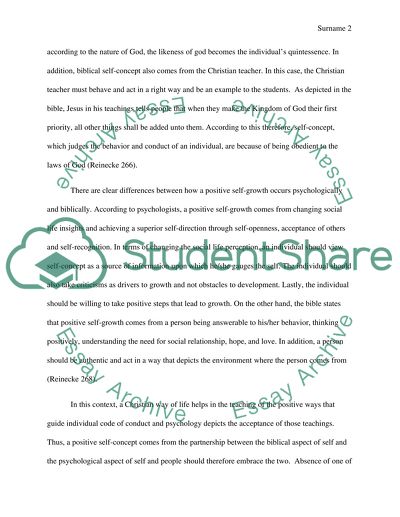Cite this document
(“A COMPARATIVE OF BIBLICAL SELF-CONCEPT AND PSYCHOLOGICAL SELF-CONCEPT Essay”, n.d.)
Retrieved from https://studentshare.org/psychology/1494576-essay
Retrieved from https://studentshare.org/psychology/1494576-essay
(A COMPARATIVE OF BIBLICAL SELF-CONCEPT AND PSYCHOLOGICAL SELF-CONCEPT Essay)
https://studentshare.org/psychology/1494576-essay.
https://studentshare.org/psychology/1494576-essay.
“A COMPARATIVE OF BIBLICAL SELF-CONCEPT AND PSYCHOLOGICAL SELF-CONCEPT Essay”, n.d. https://studentshare.org/psychology/1494576-essay.


